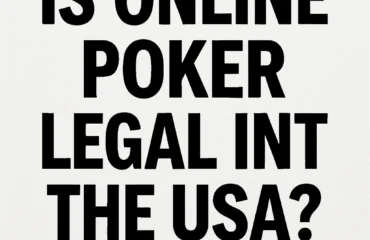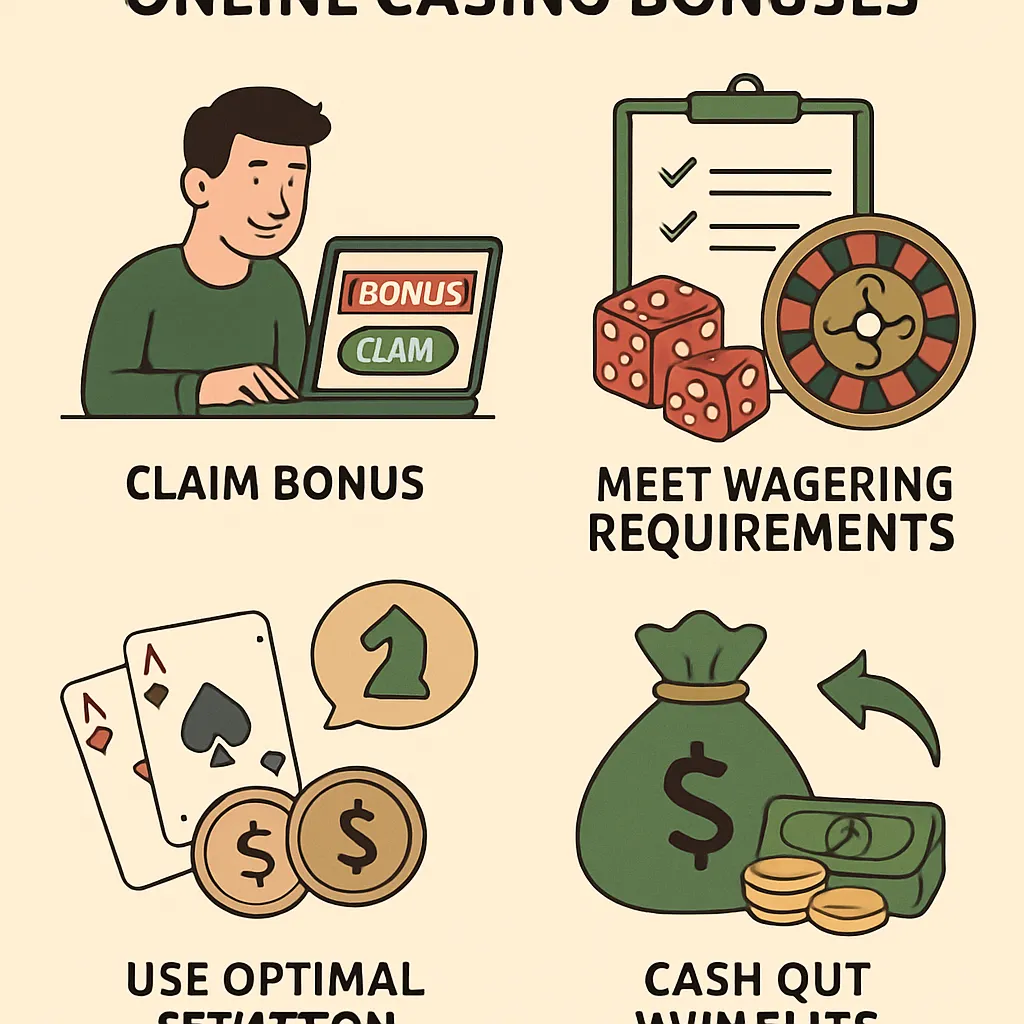Is online poker legal in the USA
2025-07-29

The estimated reading time for this post is 494 seconds
In recent years, the legality of online poker in the United States has undergone significant shifts. Many players and industry observers seek a clear understanding of what the current legal landscape allows. This guide addresses the core question: where and how Americans can legally play poker online in 2025. We will explore federal statutes, state-by-state frameworks, recent watershed events, and practical guidance on selecting a compliant poker site. By the end of this article, you’ll have a solid grounding in the legal nuances and know exactly which jurisdictions permit online poker. Let’s dive into the evolving world of online poker legality.
Understanding Online Poker Legislation in the USA
The regulation of online poker in the United States hinges on a combination of federal statutes and individual state laws. At the federal level, two landmark laws—the Wire Act and the Unlawful Internet Gambling Enforcement Act (UIGEA)—define the boundaries of legal internet gambling. Meanwhile, states retain the right to legalize, regulate, or prohibit online poker within their borders. This dual system means that what is permissible in one state may be illegal just across the border. To fully understand your rights and risks, it’s essential to examine both federal frameworks and state-specific provisions. Below, we break down the relevant federal laws before zooming in on each state’s stance.
Federal Laws Impacting Online Poker
At the heart of federal regulation are two statutes enacted in the early 2000s. First, the Wire Act of 1961 prohibits transmission of “bets or wagers” via wire communications across state lines. Although initially aimed at sports betting, courts and regulators have debated its application to online poker. Second, the Unlawful Internet Gambling Enforcement Act of 2006 targeted financial transactions related to online gambling, effectively blocking banks and payment processors from facilitating illegal bets. Together, these laws created uncertainty for online poker operators and drove many offshore. However, subsequent Department of Justice opinions and court rulings have narrowed the Wire Act’s scope, paving the way for regulated intrastate and multi-state poker networks. Understanding these federal statutes is crucial before considering any state-level licensing or prohibition.
State-by-State Breakdown of Legal Status
Because online poker legality is determined at the state level, it’s vital to consult each jurisdiction’s statutes and regulatory framework. Some states have embraced online poker, implementing licensing regimes and technical safeguards. Others have pending bills or pilot programs under consideration. Meanwhile, a number of states maintain outright bans, leaving players to risk enforcement or seek offshore sites. This patchwork landscape demands careful attention: playing from an unauthorized state could expose you to civil or even criminal penalties. Later in this guide, we provide a detailed table summarizing each state’s status as of mid-2025.
Where Can You Legally Play Online Poker in the USA?
As of 2025, only a handful of states fully license and regulate online poker. These states have established regulatory bodies, robust player protections, and approved operators. Players in these jurisdictions enjoy legal access, secure payment methods, and consumer safeguards. In addition, some states have legislation pending or under study, with committees debating how best to implement regulation. Finally, numerous states continue to prohibit all online poker activity, backed by state penal codes or attorney general opinions. Below, we categorize states into three groups: fully legalized, pending, and prohibited.
States with Fully Legalized Online Poker
Currently, the following states permit residents to play online poker on licensed platforms:
These jurisdictions have established regulatory frameworks, clear licensing requirements, and approved operators. Players can register, deposit, play, and withdraw winnings with state oversight. All licensed sites implement strong age and identity verification, fair-play auditing, and self-exclusion tools. Moreover, these states often share liquidity through multi-state compacts, enabling larger prize pools and tournament guarantees. For players seeking the safest and most transparent experience, these licensed states represent the best options in the USA.
States with Pending Legislation
Several states are actively debating online poker legislation, with bills introduced in their legislatures or regulators conducting feasibility studies. While these efforts signal a potential legal market in the near future, nothing is finalized until statutes are passed and regulations published. Stakeholders—including tribal gaming authorities, commercial casinos, and consumer advocates—are weighing in on model language, tax rates, and age verification protocols. If passed, these laws will likely mirror existing frameworks in states like New Jersey and Pennsylvania, including licensing fees, problem-gambling programs, and inter-state compacts.
States Where Online Poker is Prohibited
Despite national trends toward legalization, the majority of U.S. states continue to bar online poker. Prohibitions may be codified in state criminal codes or exist by virtue of the absence of enabling legislation. In these jurisdictions, players who use offshore or unlicensed sites risk civil fines, forfeiture of winnings, and, in rare cases, misdemeanor charges. Law enforcement rarely prosecutes individual players, but banks and payment processors may freeze transactions flagged as gambling-related. As such, residents in prohibited states face significant legal and financial uncertainty when playing online poker.
The Impact of Recent Developments on Online Poker Legality
Over the past decade, three key developments have reshaped online poker’s legal landscape: interpretations of the Wire Act, the infamous Black Friday raids, and the emergence of regulated poker markets. Each of these events shifted industry dynamics, player behavior, and legislative priorities. By examining their histories and outcomes, we can better predict where the market is headed. In this section, we consider how each development influenced federal and state approaches to online poker, and why regulated play has gained momentum in recent years.
The Role of the Wire Act and the Unlawful Internet Gambling Enforcement Act
Initially drafted to combat organized crime and sports bookmaking, the Wire Act’s applicability to online poker remained ambiguous for decades. In 2011, the Department of Justice narrowly interpreted the Act as covering only sports betting, effectively green-lighting state-regulated poker. In 2018, a subsequent opinion attempted to reverse this view but was later withdrawn. Meanwhile, the UIGEA’s restrictions on financial transactions raised barriers for U.S. operators, leading many to serve offshore customers. Today, payment processors comply with state regulatory requirements, but the overarching federal framework still causes compliance headaches for new entrants. Ultimately, clarifying these statutes remains a top legislative priority for the industry.
Black Friday: What Happened and Its Aftermath
On April 15, 2011—dubbed “Black Friday”—the DOJ unsealed indictments against executives of the three largest online poker sites, alleging bank fraud, money laundering, and violations of the UIGEA. The raids shut down PokerStars, Full Tilt Poker, and UltimateBet in the U.S., freezing player accounts and sending shockwaves through the community. In the aftermath, trust in offshore platforms plummeted, and calls for a regulated U.S. market gained urgency. Ultimately, PokerStars re-entered New Jersey under a licensed model, while Full Tilt settled with the DOJ and rebranded. Black Friday thus catalyzed the push for legalization and consumer protections under state oversight.
The Rise of Regulated Online Poker
Since New Jersey launched its first licensed poker site in 2013, the regulated market has steadily expanded. Pennsylvania, Michigan, and West Virginia followed suit, adding poker tables to their iGaming portfolios. These markets prioritize responsible gaming, player identity verification, and anti-fraud measures. Moreover, multi-state compacts—such as the one between Nevada and Delaware—have increased liquidity, enabling larger guaranteed prize pools. As of 2025, regulated operators report consistent year-over-year growth, with revenues funding education, infrastructure, and addiction treatment programs. This trend underscores the benefits of a transparent, state-controlled online poker ecosystem.
How to Choose a Legal Online Poker Site
Selecting a compliant, reputable online poker site requires careful due diligence. With unlicensed offshore options still prevalent, players must verify licensing status, technical safeguards, and financial integrity. A trustworthy site will display its state gaming license, employ advanced SSL encryption, and provide independent auditing reports. Additionally, clear user agreements, transparent fee structures, and robust customer support distinguish top-tier platforms. To help you evaluate options, consider the following factors and steps before registering your first account.
Security Features to Look For
When assessing an online poker site’s security, focus on encryption, auditing, and user controls. First, ensure the site uses 128-bit or higher SSL/TLS encryption to protect data in transit. Second, look for third-party auditing by independent labs such as eCOGRA or iTech Labs, which verify game fairness and random number generation. Third, confirm that the operator offers two-factor authentication (2FA) for account logins and withdrawals. Finally, reliable sites provide self-exclusion tools, deposit limits, and access to problem-gambling resources. These measures collectively safeguard your personal information and bankroll.
Identifying Licenses and Regulatory Compliance
Before creating an account, verify the site’s licensing and regulatory affiliations. Licensed operators prominently display license numbers issued by state gaming commissions—such as the New Jersey Division of Gaming Enforcement (NJDGE) or the Pennsylvania Gaming Control Board (PGCB). You can cross-check these numbers on the commission’s official website. Additionally, review the site’s terms of service for jurisdiction-specific clauses and dispute-resolution processes. Sites in multi-state compacts should list participating jurisdictions and share player pools accordingly. By confirming real-time compliance, you minimize the risk of account freezes or fund forfeitures.
Before diving in, always confirm your state’s current stance and consult licensed operators’ official websites for the latest updates. With the right information, you can enjoy online poker legally and responsibly.
Below is a comprehensive table summarizing the legal status of online poker across all 50 states as of July 2025. Use this as a quick reference to determine where you can play legally, where legislation is pending, and where the activity remains prohibited.
| State | Status | Notes |
|---|---|---|
| New Jersey | Legal | Launched 2013; multi-state compacts |
| Pennsylvania | Legal | Launched 2019; single-state liquidity |
| Michigan | Legal | Launched 2021; shared pools pending |
| West Virginia | Legal | Launched 2019; limited operators |
| Nevada | Legal | Launched 2013; compacts with Delaware |
| Delaware | Legal | Launched 2013; compacts with Nevada |
| Connecticut | Pending | Regulatory framework approved 2024 |
| Massachusetts | Pending | Legislation under study |
| California | Prohibited | No enabling legislation |
| Florida | Prohibited | AG opinion against UIGEA applicability |




